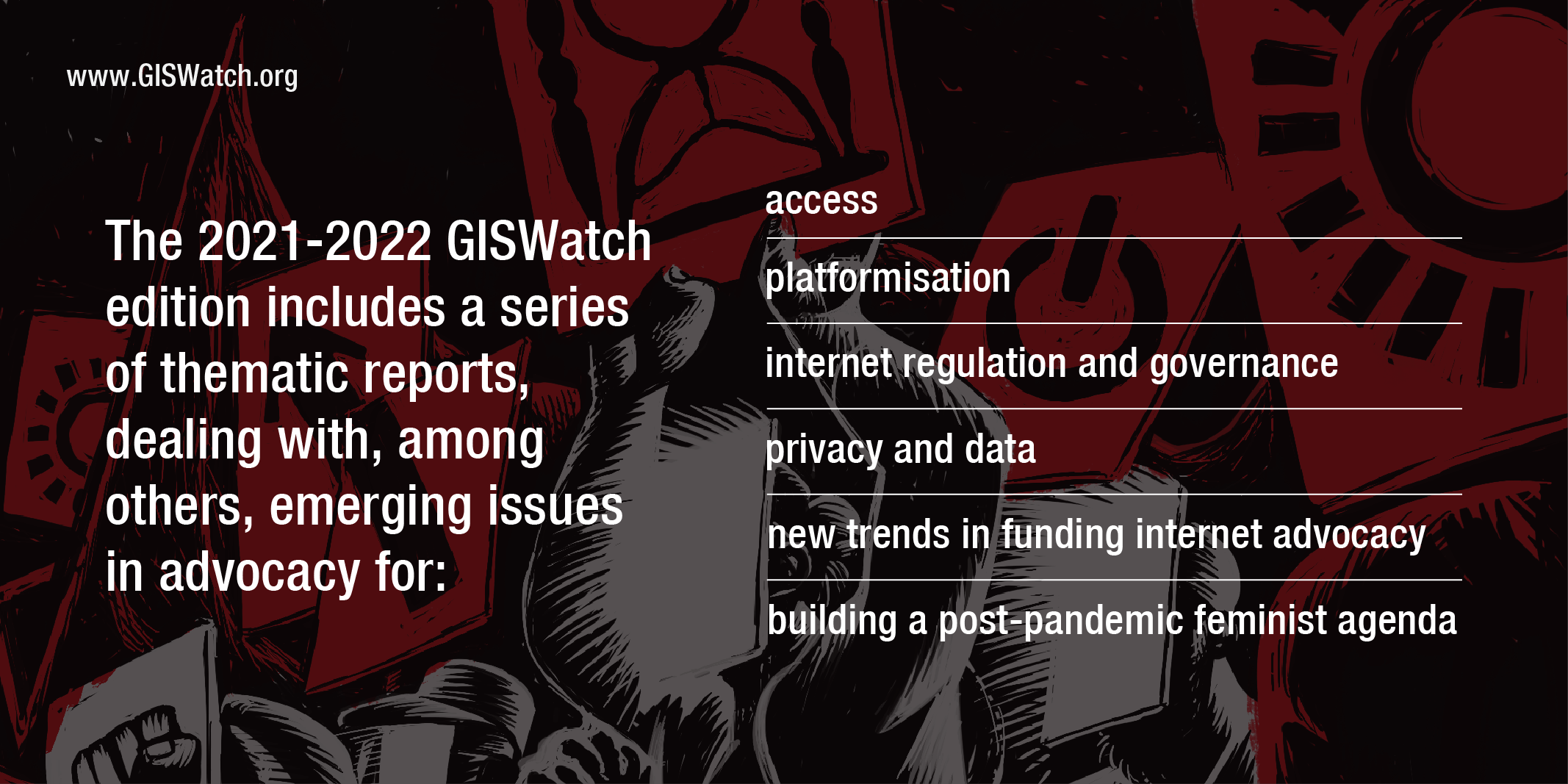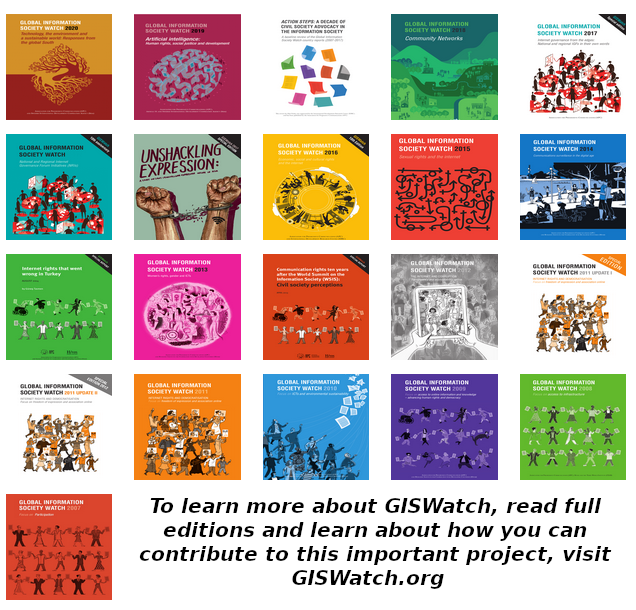GISWatch launch at the 2022 IGF: The pandemic has reactivated a sense of rebellion and contestation

Global Information Society Watch (GISWatch) is celebrating 15 years of this ground-breaking APC publication and will launch its latest edition at the Internet Governance Forum (IGF) on 29 November 2022.
Offering an in-depth exploration of “Digital futures for a post-pandemic world", the publication brings together 36 country and regional reports alongside 11 thematic reports prepared by researchers around the world, with a strong focus on the global South. Through the lens of the COVID-19 pandemic, this edition highlights the different and complex ways in which democracy and human rights are at risk across the globe, and illustrates how fundamental meaningful internet access is to sustainable development. It uses an intersectional lens to document and build narratives about the impacts of the pandemic on our advocacy priorities.
This edition's purpose was to ask two fundamental questions:
How has the COVID-19 pandemic changed or shaped the ways in which civil society organisations do their advocacy work around digital technology-related issues, including digital rights?
How have internet rights advocacy priorities shifted due to the pandemic?
We want to mark this edition's publication as both a moment to pause for reflection and an urgent call to action. “The pandemic made inequality, discrimination, exclusion and structural inequity more palpable, and rather than stagnating in indignation, it reactivated a sense of rebellion and contestation,” observes APC’s Valeria Betancourt in the preface. That spirit of activism is expressed powerfully throughout the country and regional reports from places such as Argentina, Kenya, Nepal, Korea, Tunisia and many more, alongside a series of incisive thematic reports that delve into critical topics such as community-led connectivity, internet governance, a feminist response to crises and emerging trends in digital rights funding.

Throughout this edition, what stands out is that COVID-19 is seen to have spurred an “accelerated transition” to digitalisation, with more people being online for longer periods of time during the height of the pandemic, whether for work, education, transacting online or socialising. The potential for data harvesting by Big Tech has been enormous. This has also been coupled with many governments hastily implementing planned or new e-government programmes, whether to make government services available online or for contact tracing, among other interventions, to deal with the crisis. As some put it, more is now known about us than ever before. Of course, behind this is the drive towards a data economy and society – and the potentials and perils that this might hold for digital rights.
Some of the reports already available in our sneak peek from a few weeks ago tackle themes such as the next global public health emergency, internet regulation and community-led connectivity, alongside country and regional reports from Brazil, the Democratic Republic of Congo, the Republic of Korea, and Latin America and the Caribbean.
These challenging shifts and global responses will be explored during the launch event by an expert panel of GISWatch contributors:
- Paola Ricaurte (Tecnológico de Monterrey, Berkman Klein Center for Internet & Society, Tierra Común)
- Deeepika Yadav (Digital Trade Alliance)
- Alexandrine Pirlot de Corbion (Privacy International)
- Jamila Venturini (Derechos Digitales)
The participants will engage in a discussion with long-time GISWatch editor Alan Finlay on how the COVID-19 pandemic has shifted internet rights advocacy priorities and shaped the ways in which civil society organisations do their advocacy work around digital technology-related issues.
APC Executive Director Chat Garcia Ramila will wrap up the launch with closing remarks.
The session will examine whether changes brought about by the pandemic have deepened the digital divide, how civil society’s concerns factor in vis-à-vis governments' and the private sector's, and where energies should go for achieving inclusive, participatory, transparent and democratic internet governance in the future. Alongside the risks there have emerged new opportunities to organise, mobilise and come together, even while apart. As Betancourt and Finlay suggest in the introduction to the edition, “How this reimagining of possibilities can be introduced into spaces for deliberation and policy making and inform the new movement building that needs to take place is up to us, as civil society actors.”
Join us in celebrating the launch of this highly anticipated edition of GISWatch and join the conversation!
Join the launch online by registering for the IGF and adding the session to your calendar.
Follow us on Twitter and use the hashtags #GISWatch and #DigitalFutures.
Take a look at several full-length reports in the Sneak Peek to the full edition of GISWatch.
Meet the people who have helped to shape this powerful project in this 15 year celebration series.
Learn more about GISWatch and read past editions by visiting giswatch.org.
Are you a journalist and wish to connect around the upcoming edition of GISWatch? Write to us at communications@apc.org and check out our Press Kit.
